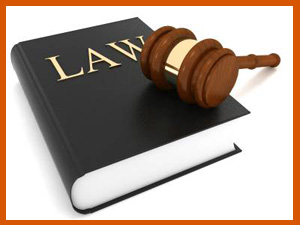 Q1. How long does it take to decide a civil case in India ? Q1. How long does it take to decide a civil case in India ?
A1. The time period for the decision of any Civil Suit varies drastically from state to state and even from court to court in any particular state. However it shall generally take at an average of between 6 months and 3 years to decide any civil matter before the court of original civil jurisdiction, depending on various factors like number of parties involved, interim reliefs sought, any interim calamity etc.
However, most of the times, at least one Appeal is preferred from the original decision of the originating court, which may take about half the time more.
Q2. How long does a decision take in a criminal proceeding in India ?
A2. Again the time for deciding a criminal case may also vary drastically, and generally it takes anywhere between 2 to 5 years for the initial decision of the originating court, depending on the number of accused in the matter and their bail grants, and in case of a conviction almost invariably there is bound to be an appeal to the higher court, which may take almost one-third as long.
Q3. How can I find a good lawyer in India ?
A3. The best way which is also the most common way of finding a good and competent lawyer anywhere in the world is from word of mouth. Talk to your friends and relatives, who then direct you to a lawyer or a law firm whom they know personally and deem them to be competent for the legal assistance needed by you, and shall honestly labour for you with the maximum possible use of law and facts in your favour.
Q4. Is or are there any different types of Proceedings ?
A4. There are many different proceedings in the courts of law, which are called as Petitions, Suits, Applications, Execution Applications [Darkhasts], Miscellaneous Applications, Minor Applications [Kirkol applications] etc., however generally every proceeding is conducted in the same manner, by giving the other side full opportunity of being heard in the matter, and in the adversary pattern (i. e. - one party versus another, even if the parties are truly not at loggerheads).
Q5. I wish to engage your services, I also agree on the fees, how do I make payment to you ? I wish to engage your services, I also agree on the fees, how do I make payment to you ?
A5. As of now we accept payment only in Indian Rupees. The same can be sent in the following manner :
a) If you are in Kolkata - by either delivering cash at our office or sending a cheque at our office.
b) If you are located anywhere else in India - through Demand Draft or Bankers' Cheque, making it payable at Kolkata, and dispatching the same through courier.
c) If you are located outside India - through Demand Draft only, in Indian Rupees, from either any branch of any Indian bank in the nearest country or any other International bank having its offices in Kolkata. There are a number of leading international banks operating in Kolkata making it payable at Kolkata and dispatching the same through air courier to our office.
Q6. Are the daughters eligible for equal right of the father property like son ?
A6. YES and NO. It basically depends on the kind of property held by the deceased. In case the property is the property of the Joint Hindu Family under the Mitakshara Rules (applicable generally to most parts of North India, including the Eastern and Western parts) the same is and has been since ancestral times been considered as the male bastion, and thus the share of the deceased is only to the extent of his own share, the rest goes to the surviving male members of the family, for such property the girls have no claim except for their maintenance and marriage, which is then the duty of every male member of the family. however the individual share of the property, as if the same had been divided in all the male members of the family just prior of his death, is sharable by all the heirs equally, which obviously includes all the female members like mother, wife (widow) and daughters.
 Q7. What kind of services do you / does your firm provide ? Q7. What kind of services do you / does your firm provide ?
A7. Contact us for further details.
Q8. How can I change my name ?
A8. Contact us for further details.
Q9. How can I get married legally & properly ?
A9. Contact us for further details.
Q10. How do I have my name included in place of my deceased ancestor in the property records ?
A10. Contact us for further details.
Q11. A cheque given to me by somebody has bounced. What do I do ?
A11. Contact us for further details.
Q12. I wish to obtain my Birth Certificate. What do I do ?
A12. Contact us for further details.
Q13. Once a First Information Report (F. I. R.) is lodged for economic offences for what period does the complaint remain valid and when is the case closed down ?
A13. An FIR is lodged, only after the officer concerned comes to a conclusion that, the complaint being made by the complainant (orally or in writing) is of a cognizable nature. Generally for economic offences below Rs. 25 lakhs, it the local police station in Mumbai which registers the offence beyond which it the Economic Offences Cell in the Police Commissioner's Office in Mumbai which registers the offence.
After the registration of the offence, which process begins by lodging of the First Information Report of that offence by the complainant in that case, the police are supposed to begin their investigation of the offence, and arrest the persons found guilty, whether their names appear in the FIR or otherwise, if and when they can get hold of the guilty offenders, they may also conclude that :
a) there has not been any offence committed, or
b) the person/persons accused of having committed the offences, are not guilty,
and if no person can be found to be guilty of the offence or if they come to a conclusion that there has not been any offence, they may close the case. Though there is no strict time limit for this, yet normally the police close their files in about 6 calendar months.
 Q14. In what situations are F. I. R. rejected ? Q14. In what situations are F. I. R. rejected ?
A14. Legally an FIR may be rejected only when the concerned officer comes to an absolute conclusion that the complaint being made to him, orally or in writing is not of a cognizable nature, and therefore does not merit an investigation by the officer of the police department.
Q15. How many types of possessions are there ?
A15. There are two types of possessions in law, the de jure possession or the possession of law and the de facto possession or the factual possession. The example of the first as against the second is the possession of a joint holder of the property, where the factual possession may be of only one joint holder, but is legally deemed to be of every joint holder of the same.
Q16. Isn't the installation of mobile deactivator (like in Parliament) it the violation of the right of mobile holder to use his mobile wherever he want ?
A16. This right is not absolute, and this right can not override the rights of others for peace and serenity, nor can your rights disturb the rights and activities of others. You will agree that, many times a mobile ring disturbs the surroundings like a theatre or movie hall.
In case of a public building, where people gather or go to, like railway station, it would be the government which could decide about deactivating mobile phones in the general interest of the visiting public, (may be one day it may be installed in the High Court Building also) but in a private place, like a building or office fully owned by an individual (a legal individual includes a firm or company) the owner may deem it fit to install a mobile deactivator [if available to him or it]. This is a possibility with many leading large clubs, where ringing of another's mobile is considered as a break in the serenity of the surroundings and an intrusion in the peaceful existence of the fellow members.
Q17. What is the difference between a Lease and a License ?
A17. Following are the basic differences between the two, though a close scrutiny of the document creating the same by an expert lawyer shall be required for better appraisal :
A] License is governed by the Easements Act, 1882, while the lease is governed by the Transfer of Property Act, 1882.
B] If an interest is created in a property it is lease, but where only a permission for user is granted, it is license.
C] Generally if an exclusive possession is granted it is lease else license.
D] It will basically have to be construed from the document creating it.
E] normally a lease is for a longer period and license for a pretty short period.
Q18. I am a software professional in service. My employers have made me sign a bond for *** years, I wish to leave the job in-between, and join a better prospect elsewhere. What can I do ?
A18. There have been numerous cases in courts, where these bonds have been declared as illegal and ultra virus, being forcing something termed as personal volition. Moreover it has also been held that, the amount spent by the company for training its staff was for its own betterment, since the company continued to generally pay the same wages for higher quality and output.
 You may leave your present job any time, subject to any employment contract (this is different from the bond) laying down the terms of work in the office. No law can force you to stay in any particular employment, and you may leave the job any time, subject to your terms of employment. You may leave your present job any time, subject to any employment contract (this is different from the bond) laying down the terms of work in the office. No law can force you to stay in any particular employment, and you may leave the job any time, subject to your terms of employment.
However, in case there is only the bond, the company may threaten you with suing under the same, it may also withhold your other benefits and dues, under some pretext. For claiming every such due, you shall have to claim the same before the court of law. On the other side, your company may also sue you for breach of contract and under the bond. No doubt you should eventually win every such case, and stand to reclaim all your dues with interest and nominal costs, however do not forget that, litigation is highly time, energy and money consuming, and good lawyers seldom come cheap. Moreover note that, your company may afford hundreds of litigations, since they may again employ somebody to look after the matters, keeping the management generally free for all other tasks, you have to fight a lone battle, many times leaving aside other things, a few of them may be more urgent. Therefore our suggestion is to fully weigh all the options before deciding onto something, and unless it becomes absolutely impossible to stick around, do not leave the present job, and continue till the end of your consented term.
Q19. Does power of attorney is required to be mandatorily notarised and registered ?
A19. In case it is executed by more than four persons, it has to be only executed in front of a Notary Public of the area, else the same can be also executed before the local oath giving magistrate or the local notary. Executing it before the Notary Public is generally termed as being notarised.
Not all Powers of Attorneys are required to be Registered, and only very few categories of the same are compulsorily registrable for being valid.
Q20. My father died without making a will. My name was not there as the joint holder in bank accounts. I am the only son. what is procedure for getting accounts transferred to my name ? I was told succession certificate is necessary. what is procedure to get it ?
A20. Though sometimes banks do it simply with heirship records and filling necessary forms and bonds, yet legally speaking, Succession Certificate is the only means by which the bank should transfer the funds into your name, and therefore we can not insist with the bank for using other methods; and therefore your information is correct to that extent.
Q21. I need / wish to adopt a child from India, what is procedure to do it ?
A21. First you shall have top identify the child you wish to adopt. Next you shall have to find out and ascertain, whether under the given circumstances you are eligible to adopt a child, and if yes what kind. You shall have to also ascertain whether the parent or guardian of the child is capable of giving the child in adoption and lastly whether the child itself is capable of being adopted. Since this is a pretty complicated issue and varies from case to individual case, you should seek clear legal opinion on this either from your own lawyers or else from us.
Q22. What is the "Stridhan" of a lady ?
A22. The following is the Definition of Stridhan [belongings of the lady (including her clothes and ornaments) any time during her lifetime including the duration of her marriage, whether she stayed with her husband or not] :
| A. |
Brought by her from her parents place to her in-laws place and the matrimonial home (which shall include the gifts directly given to the in-laws and other relatives of her husband). |
B. |
Gifted to her by her husband and his family during the marriage (including the rites and rituals). |
C. |
Gifted to her by others (friends or relatives etc.), any time in her lifetime. |
| D. |
Bought / purchased by her or any body else in her name any time during her lifetime, including before, during and after her marriage. |
Q23. My wife could Misuse IPC 498A against me and my parents.
A23. Since one can not prevent anybody from moving the legal machinery (irrespective of whether the complaint is true or false) and it is only after investigation the truth comes out; it becomes quite important that we subtly create some evidence in our favour.
This could be in terms of getting (meaning tricking of sorts and not forcing or imposing upon) her to write to any of her friends or relatives that she was quite well treated by yourself and your family and that, no dowry, prior to, during or after the marriage was ever sought from your side. Another thing that could be done by you is to lodge a few complaints in writing to the local police station against her behaviour and most important the threats she has been giving regarding involving you persons in some false offence including the one under S. 498A.
 Q24. What is 'Caveat' and how this system will work ? Q24. What is 'Caveat' and how this system will work ?
A24. Caveat is an application filed by a legal person in a particular court of civil nature against one or more legal persons, seeking to be heard before passing any ex-parte order against him in any proceedings that may be filed by the said persons against him in that court.
The caveat is live for 90 days from the date of filing.
You have the caveat Application properly drafted and file it in the court, or engage the services to do the same. The notice of Caveat along with a copy of the caveat Application shall need to be sent to each person against whom the caveat has been filed.
In case the other side files any case against you in the civil court, the court shall not grant any ex-parte order but issue you an urgent notice to appear before the court and reply. However, in such case, you shall have to be prepared to file your reply at a very short notice, and be also fully prepared to immediately argue the matter in the court. |